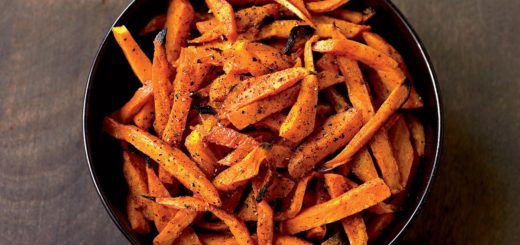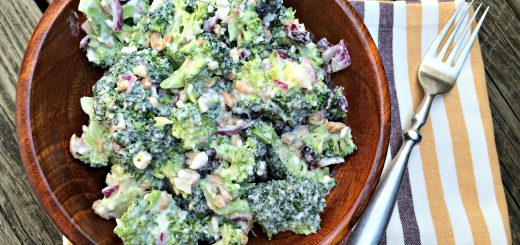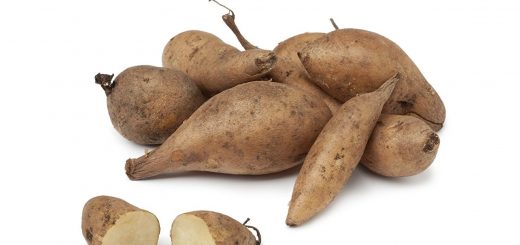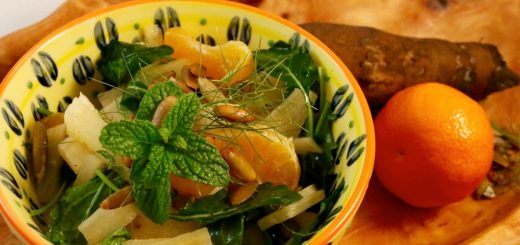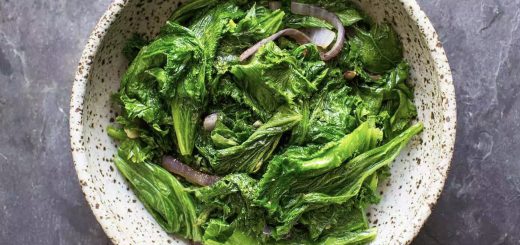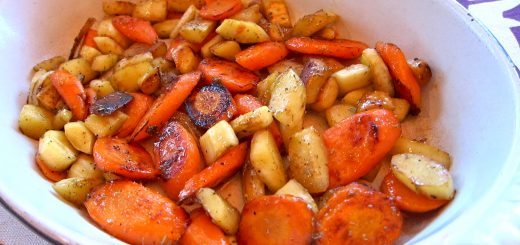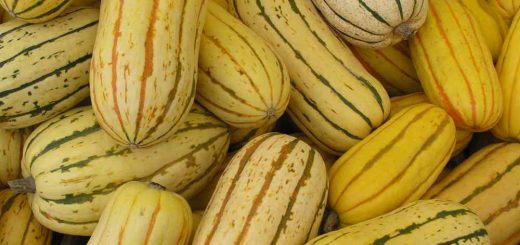Monthly Archive: October 2023
Hello folks, Happy Halloween! No time for trick or treating for us – we are busy covering crops to protect them from a series of cold nights this week. We have been picking a lot of peppers because they can be stored for a couple of weeks and covering the plants will probably not be sufficient protection. Soon we will have to abandon the more tender crops and concentrate on protecting the hardier ones, which can still sustain some damage if the temperatures drop below 28 degrees. (more…)
If you have left over sweet potatoes—and you probably do, these are so fantastic, even your pickiest eater will probably like them. (more…)
Try this with any of your favorite veggies! Keep them raw or lightly steam them for a softer bite. (more…)
Hello Folks! So, there will not be any sweet potatoes in the share this week (they will be back in the mix next round). There will be a tuber that looks a lot like a sweet potato but is not. It is called Yacon and is a member of the sunflower family native to South America. It is sweet and juicy and has a slight orange color (carotene). The sweetness comes from a sugar called an FOS (fructooligosaccharide) which is not digestible and hence does not affect blood sugar level. It is known as a prebiotic and contains beneficial antioxidants. (more…)
Easy to grow and store, high-yielding, supernutritious and crunchy like an apple, yacon root (pronounced ya-kon) is one of the many “new” vegetables coming to us from South America. In reality, this fruitlike vegetable has been cultivated throughout the Andes for more than a millennium. South Americans eat it as a fruit; they also use the huge leaves to wrap foods during cooking, in the same way cabbage leaves are used in Germany, grape leaves in the Mideast and banana leaves in the tropics. Only recently – thanks to some adventurous green thumbs – have North Americans begun to see yacon in produce markets. (more…)
Yacon is commonly enjoyed raw. It’s really easy to prepare yacon, just peel off the brown skin and shred it or chop it into dishes, such as salads and slaws. Here’s a citrus salad found on Sharon Palmer’s plant-powered dietician blog. The yacon gives this salad a slightly sweet, juicy crunch. (more…)
Peppery mustard greens shine in this simple greens recipe found on the cooking website Simply Recipes. Sauté with onions and garlic, then serve with most any meal that can use a good dose of mustardy bite. The recipe serves 4. Enjoy! (more…)
Parsnips and carrots are a classic fall side dish. It’s best to use parsnips less than an inch wide, as wider parsnips tend to have tough, fibrous cores that are best trimmed and discarded. Using warm water will help the sugar dissolve more readily. This recipe comes from Cook’s Illustrated and can also be found on genius kitchen. Serves 6-8. (more…)
Hi All! The weather continues to be less than ideal. The only saving grace is that we have not had a frost thus far. We are expecting two or three cold nights early next week. Hopefully they will not be too severe, and we will be able to cover some of the more tender crops to keep them alive.
We are still trying to harvest a crop from the last planting of beans and would like to continue the pepper harvest as long as possible. Many of the other crops remaining in the field are hardy enough to tolerate a frost or a light freeze. We are continuing to distribute a second round of cauliflower and cherry tomatoes to a few groups. We are beginning to double up on the root crops, as we often do during the final weeks of the season. (more…)
Delicata squash is a long, oblong-shaped squash with a cream colored, green-striped, outer skin and a golden, fine-textured inner flesh. This is one of the tastier winter squashes, with a creamy pulp that tastes a bit like corn and sweet potatoes. It can be baked or steamed and served as a side dish, seasoned with butter and herbs, providing a sweet nutty flavor with a creamy smooth texture. The thin skin is also edible. (more…)

